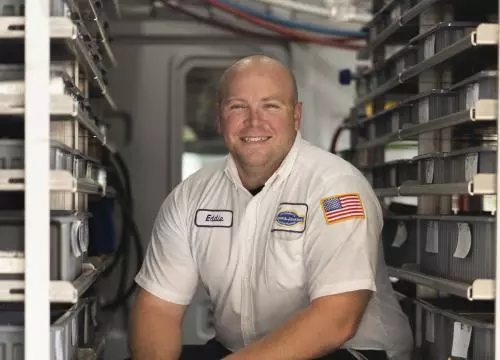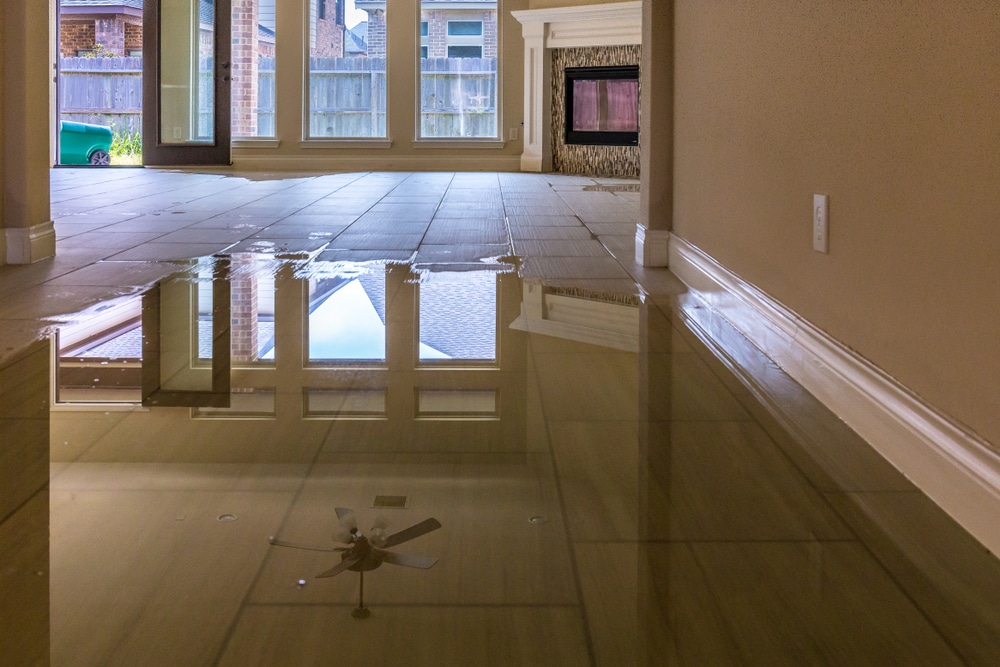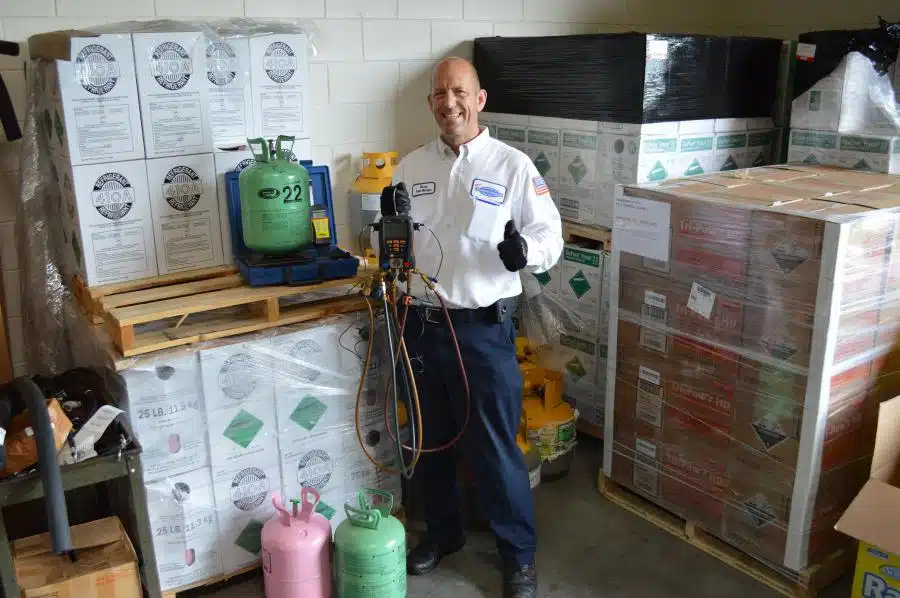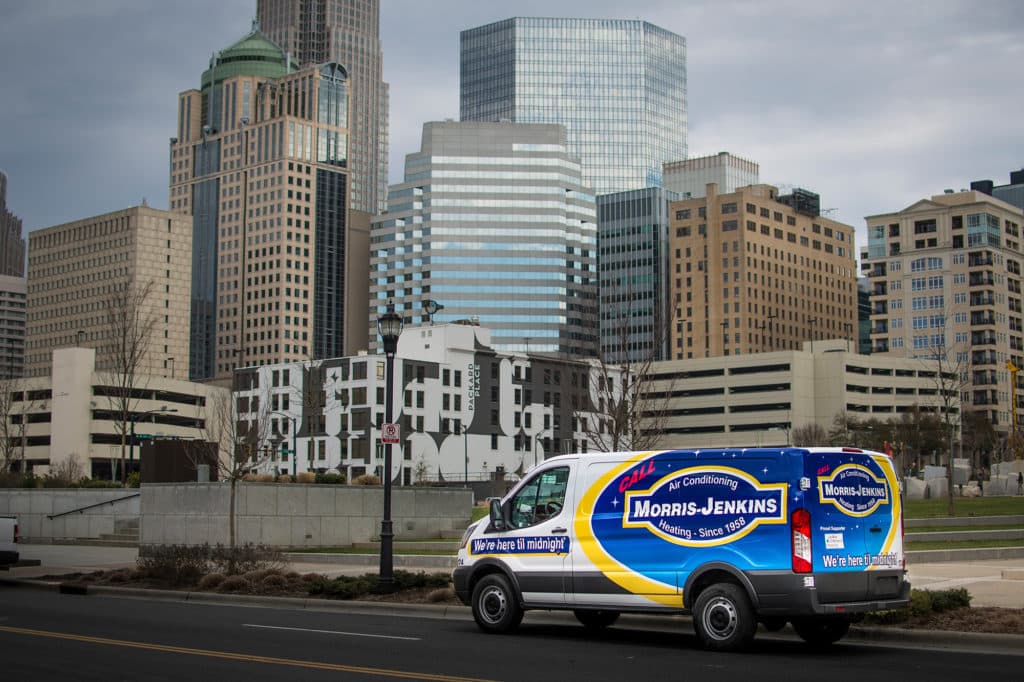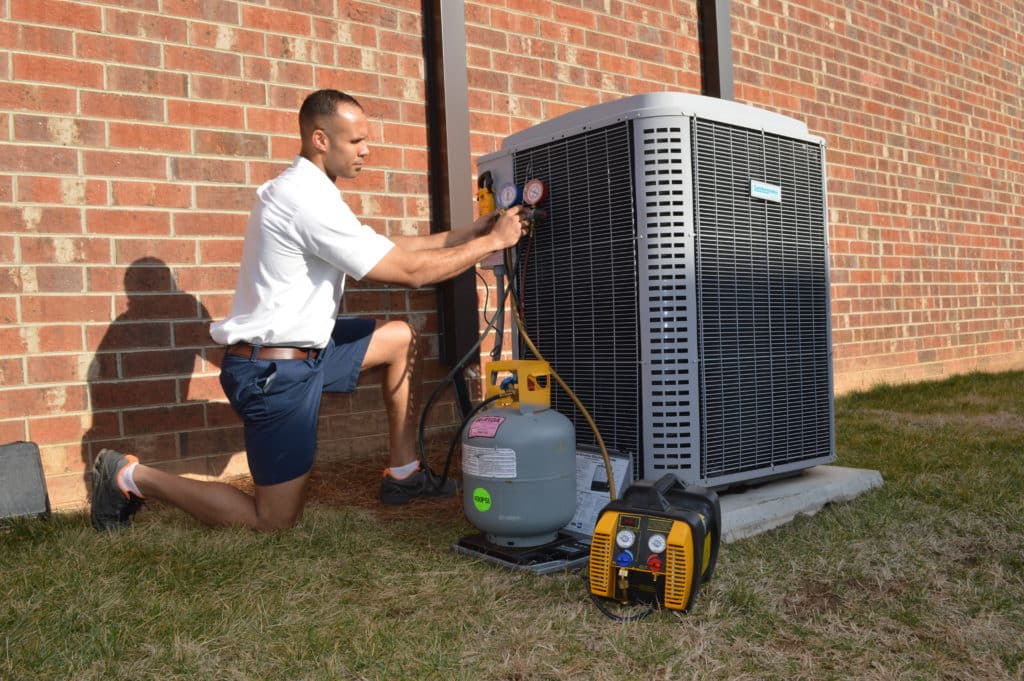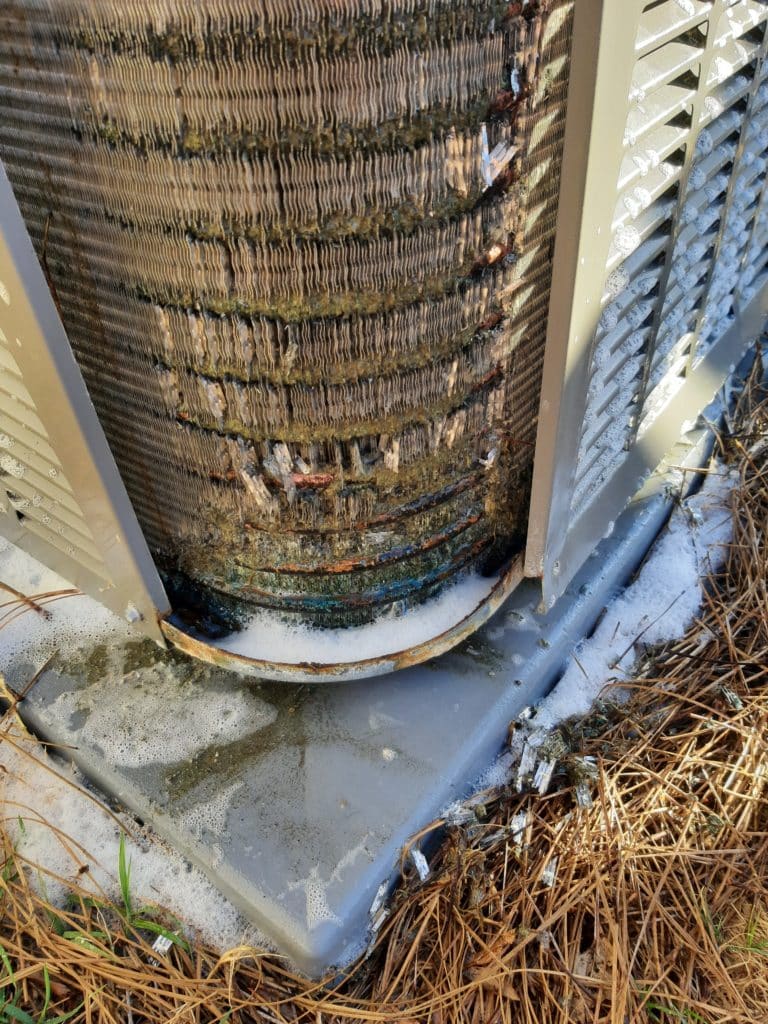Whether you associate cold weather with cozy nights wrapped in blankets or you see nothing but dismal grey skies, one thing is for sure: winter weather can mean chaos for your home’s plumbing!
Cold temperatures could lead to problems such as ice blockages or frozen pipes, but these problems can quickly escalate and lead to burst pipes. With some help from our talented plumbing department, we’ve come up with some things you should know about how winter weather impacts your plumbing, as well as what you can do to protect your home this winter.
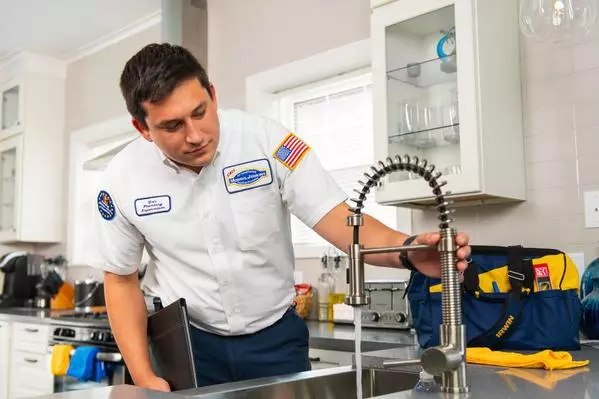
Can Water Pipes Freeze in the Winter?
Your home’s water pipes can definitely freeze in the winter! Pipes in your garage and attic are at the highest risk for freezing. Sometimes, pipes in your cabinets, exterior walls, or crawl space can be at risk as well.
How Can You Tell If Your Water Pipes Are Frozen?
One of the most obvious ways to tell if your home’s pipes are frozen is if you turn on one of your faucets and nothing comes out (or nothing but a trickle). If this happens, ice might be the culprit! If you see a frosty-looking pipe, chances are it could be starting to freeze (which can lead to ice blockages).
How Do You Thaw Ice in Your Pipes?
If you think your pipes may be frozen, you might be wondering what to do about it. If your pipes haven’t ruptured, you can thaw the ice in them by taking a few simple steps.
1) Try turning on the faucet to get water flowing.
This will also help you monitor the water flow, which is helpful when trying to see if the ice has thawed.
2) Apply heat to the frozen pipe.
If you have a frosty pipe and can safely access it, you can apply heat to the frozen portion to speed up the process. Things like hair dryers or waterproof heating pads work well for this! Keep applying heat until the water flow is back to normal.
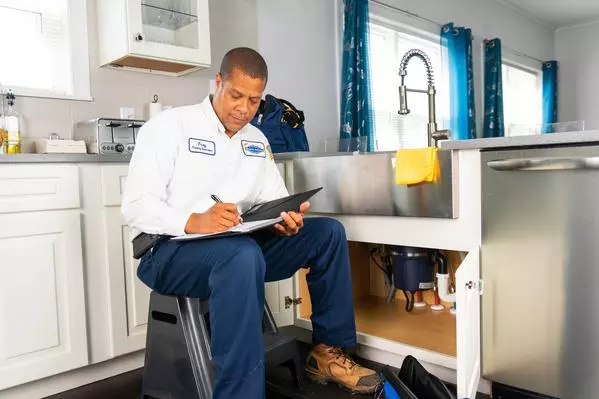
3) Check other faucets.
It’s not a bad idea to check your other faucets to see if other pipes have frozen as well. If it’s cold enough for one to freeze, it’s possible others have frozen as well.
Not every cold snap will lead to frozen pipes or ice blockages, so you don’t have to take the steps we just discussed unless you have a reason to suspect freezing. If you really do have a frozen pipe, these tips can help reduce potential damage to your home’s plumbing. If you suspect a frozen pipe but can’t locate it, call a plumber!
How to Stop Pipes from Freezing in the Winter
You don’t have to wait until your pipes freeze in order to do something to prevent ruptures! In fact, there are quite a few things you can do to keep your water pipes from freezing over in the first place.
1) Open bathroom and kitchen cabinets.
If it’s supposed to be a particularly cold night, open your cabinets up before bedtime. This allows the warm air of your home to circulate around any pipes in your cabinets. Be sure to move any chemical cleaning products you had stored so they’re out of reach if you have children or pets.
2) Let faucets drip.
You don’t have to turn on all your faucets for this one to be beneficial—just the ones that get their water from pipes that are exposed to the cold. After you figure out which faucets should stay on, leave them on (even a trickle is enough!) when it’s extra cold out. Make sure you leave the hot and cold water on (again, just a little is fine) because hot and cold water lines can both be affected by cold weather.
You might be wondering how a trickle from your faucets can make much of a difference. It all boils down to the energy in running water versus standing water. Running water carries more energy and creates more friction, which produces more heat (even if it’s just a little). This makes it harder for your pipes to freeze. Even a small trickle can make a big difference to keep your pipes from freezing over on cold days!
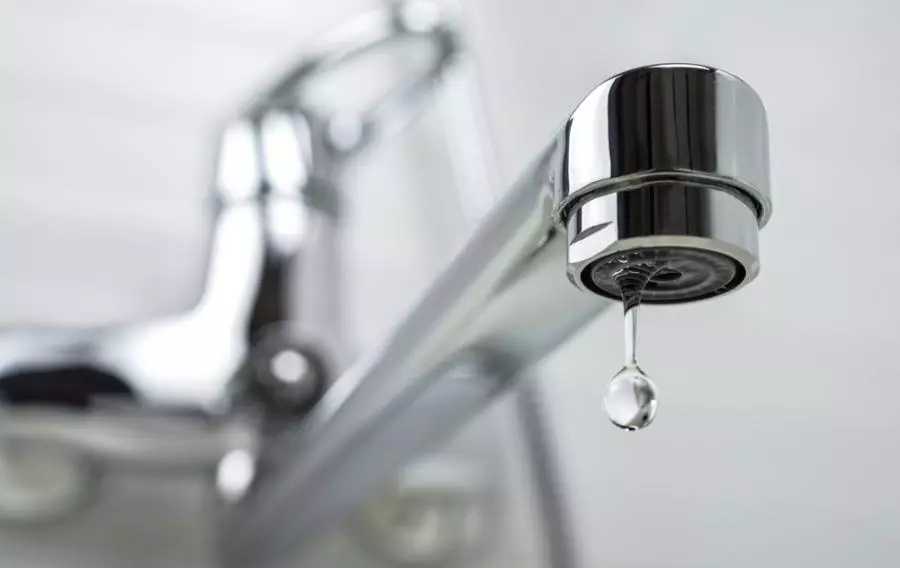
3) Keep your thermostat temperature consistent.
A lot of people lower their home’s temperature at night to save a few dollars, but because nighttime is often colder, this leaves your home’s pipes at a higher risk of freezing. In general, a few degrees won’t freeze your pipes unless you have one that’s already on the verge of freezing. If you’re gonna change the temperature of your home, just try to avoid sudden, drastic changes.
Trying to go green? Here are some of our favorite tips!
4) Keep doors inside your house open.
Most houses have uneven distribution of heat but keeping doors within the house open during cold weather can help. This is especially important when it comes to keeping bathroom doors open, since they house more piping.
5) Keep your garage door closed.
Stepping into the garage during the winter is the worst! It’s always SO cold. Smooth concrete already keeps the space cold enough. Leaving the garage door open makes this even worse. Not only that, but your garage is likely where you’ll find some of your home’s pipes (and possibly the water heater). You don’t wanna let these things get too cold!
6) If you’re going out of town, keep your heat set to at least 55 degrees and consider draining your pipes.
You don’t have to keep the thermostat at your usual temperature when you’re away from home, but we don’t recommend letting it get below 55 degrees. If you wanna take it a step further to protect your pipes in the cold, you can drain them. Draining your pipes isn’t necessary, and it rarely gets cold enough around Charlotte to warrant this step.
How to Drain Your Pipes:
If you’d like to do this, all you have to do is shut off the water to your home, turn on all water fixtures (including your hose spigots), turn off your water heater, and drain the tank. Most people don’t go this far, but if you decide to, it’s a good practice if you’re leaving for a week or more.
7) Seal cracks and openings.
Seal off your crawl space and make sure any cracks and openings in your home are properly sealed. There might even be cracks or holes in your exterior and interior walls around piping that you could seal off with caulk.
8) Install pipe insulation.
Consider investing in protecting your home’s plumbing by installing pipe insulation. This helps trap heat in your pipes, keeping them from getting too cold.
9) Disconnect hoses from outdoor spigots & turn them off (consider investing in a spigot cover for extra freeze protection).
If you leave your hose connected, some water can stay in the pipe attached to the spigot and can then freeze. This could damage your pipes or even the faucet itself. For the same reason, it’s a good idea to make sure the spigot is turned completely off.
Why Do Pipes Burst During the Winter?
When water in your pipes freezes, the molecules expand and put a lot of pressure on your pipes. If that happens in a spot that’s too weak to handle it, the pipe can burst!
Wanna know what kind of pipes your home has and whether you could use an upgrade? Check out our article about water pipes!
What to Do When Water Pipes Burst
If you have a burst pipe that’s still frozen, thawing it out could flood your home. Instead, go to your main shutoff valve and turn off your water. Then, call a plumber! It’s best to get professional help before the weather warms up and your pipes unfreeze because that could cause a huge mess and damage a lot of your furniture and personal possessions.
Prevent Plumbing Chaos
Morris-Jenkins plumbers have seen it all! When you need help, whether it’s a frozen pipe or an emergency with a burst pipe, we’re here for you.
Have a plumbing problem? Don’t wait until it gets worse.
